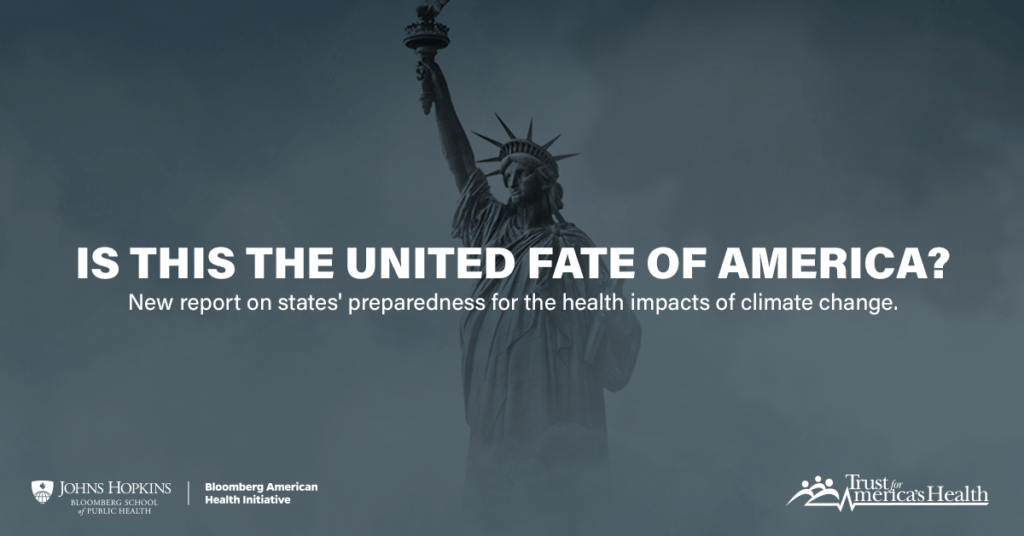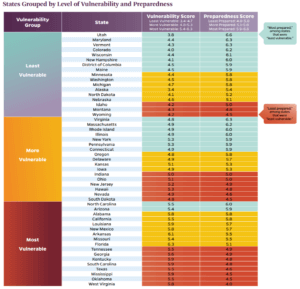New Climate Change & Health Report Assesses States’ Preparedness
This week, Trust for America’s Health and the Johns Hopkins Bloomberg School of Public Health released a new report, Climate Change & Health: Assessing State Preparedness. The report assessed all 50 states and the District of Columbia on their level of preparedness for the health effects of climate change, as well as their vulnerability to climate-related threats. It identified eight states that are most vulnerable to the health impacts of climate change and least prepared to protect residents from them: Georgia, Kentucky, Mississippi, Oklahoma, South Carolina, Tennessee, Texas, and West Virginia. All the report’s findings are relative, i.e., based on comparisons between states.


States were grouped based on both a vulnerability score (least, more, and most vulnerable) and a preparedness score. Many of the least prepared states are also the most vulnerable, though all states, even those found to be most prepared, need to do more to protect residents. Researchers used a variety of environmental, social, and demographic indicators to determine vulnerability. Preparedness was based on indicators of core public health readiness, as well as documented adaptation planning.


The health threats that climate change poses to the population are wide-ranging. While hurricanes and wildfires may grab headlines, other threats include more frequent, intense, and extended heat waves; deteriorating air quality; chronic flooding; and increases in vector, water, and food-related disease. In addition, the toll that these events take on mental health and well-being must not be overlooked.
In order to protect the population from these harms, policymakers must take action. Recommendations from the report include:
Federal policymakers
- Congress should enact legislation requiring a national climate-readiness plan.
- The Biden administration and Congress should fully fund the CDC’s Climate and Health program and the National Environmental Public Health Tracking Network.
- Strengthen the national public health system and workforce, including by modernizing data and surveillance capacities.
State policymakers
- Complete all steps of the CDC’s Building Resilience Against Climate Effects (BRACE) framework.
- Bolster core public health preparedness capacity, and establish and sustain dedicated funding and staffing for climate-related preparations.
- Plan with communities, not for them.
Trust for America’s Health is a partner of Climate for Health, a coalition of health leaders committed to caring for our climate to care for our health. Founded by ecoAmerica, Climate for Health offers tools, resources, and communications to demonstrate visible climate leadership, inspiring and empowering health leaders to speak about, act on, and advocate for climate solutions.